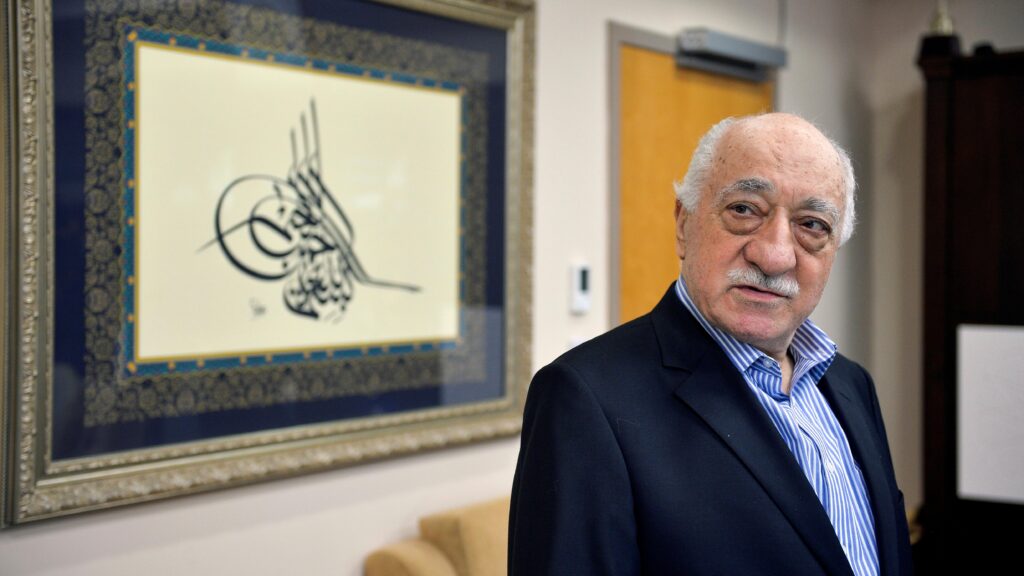The Stockholm Center for Freedom (SCF) on Monday published its latest report, “Dehumanizing a Legacy: How Fethullah Gülen’s Death Triggered a Campaign of Hate Speech in Erdoğan’s Turkey,” which examines the surge of hate speech following the death of Fethullah Gülen, a US-based cleric whose followers have been systematically persecuted in Turkey for more than a decade.
Gülen had been living in the United States since 1999 and passed away at a hospital in Pennsylvania at the age of 83 on October 20.
Taking a cue from President Recep Tayyip Erdoğan’s own inflammatory rhetoric, pro-government media relentlessly used hate speech dehumanizing and demonizing Gülen and his followers after his death. Simultaneously, the government also initiated a spate of censorship to suppress moderate voices and promote anti-Gülen hate speech as the dominant public discourse, the report said.
“Hate speech against the Gülen movement has been a calculated and systematic effort by the Erdoğan government,” said Dr. Merve R. Kayıkcı, research director at SCF. “It was used to delegitimize and marginalize a mainstream religious and social group, turning it into a national scapegoat.”
Over the last decade Gülen and his movement, known as Hizmet (Service) or more commonly the Gülen movement, which in the past had been praised by the Turkish government for their activities in education and interreligious and intercultural dialogue, have faced various accusations from the government, including masterminding corruption investigations in 2013 and a coup attempt in July 2016.
The Turkish government labeled Gülen and his movement as “terrorists” in May 2016.
Gülen and his followers have strongly denied any involvement in the coup or any terrorist activities but have been the subject of a harsh crackdown for a decade, which intensified in the aftermath of the abortive putsch.
According to the SCF report, Turkish media’s coverage of Gülen’s death diverged sharply from the measured and objective tone of Western outlets, which highlighted Gülen’s global influence and his advocacy for education and interfaith dialogue while also acknowledging unproven allegations against him.
This stark contrast in coverage reveals the broader implications of media narratives in shaping public perception. The persistent climate of hate and dehumanization in Turkey has led many to turn a blind eye to the widespread arbitrary detention, mistreatment and unfair trials inflicted on members of the movement, even when it has directly impacted their own friends or relatives, the report said.
According to the report, “Hate speech fosters a toxic environment that leads to discrimination, violence and social unrest. By dehumanizing individuals and groups, it erodes the foundations of inclusive and diverse societies, creating an ‘us versus them’ mentality that can lead to devastating consequences. …
“The persecution of the Gülen movement exemplifies the dangerous link between hate speech and atrocity crimes, as it has been frequently described as amounting to crimes against humanity. Addressing and combating such dehumanizing rhetoric is essential to upholding human rights and preventing further harm.”
About the Stockholm Center for Freedom
SCF, set up by a group of journalists who were forced to live in self-exile in Sweden against the backdrop of a massive crackdown on press freedom in Turkey, is a non-profit advocacy organization that promotes the rule of law, democracy and human rights with a special focus on Turkey.
SCF is committed to serving as a reference source by providing a broader picture of rights violations in Turkey, monitoring daily developments, documenting individual cases of the infringement of fundamental rights and publishing comprehensive reports on human rights issues.
SCF is a member of the Alliance Against Genocide, an international coalition dedicated to creating the international institutions and the political will to prevent genocide.

